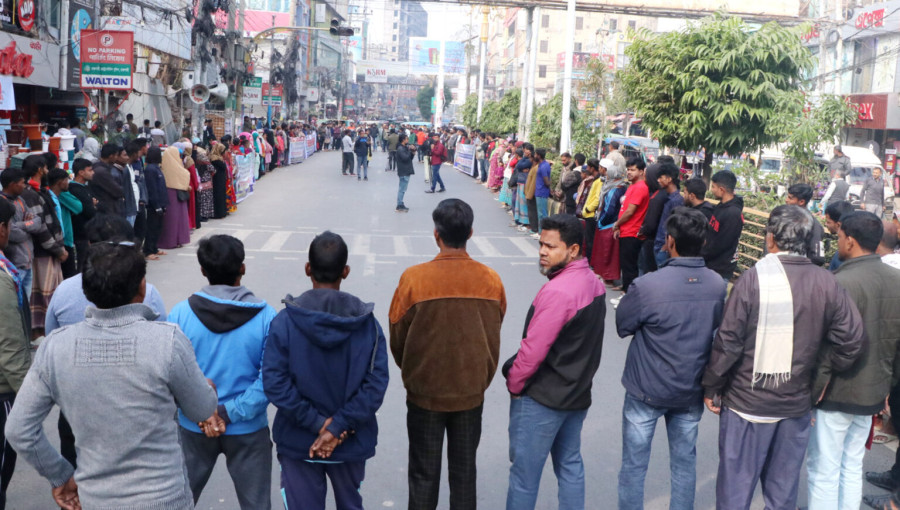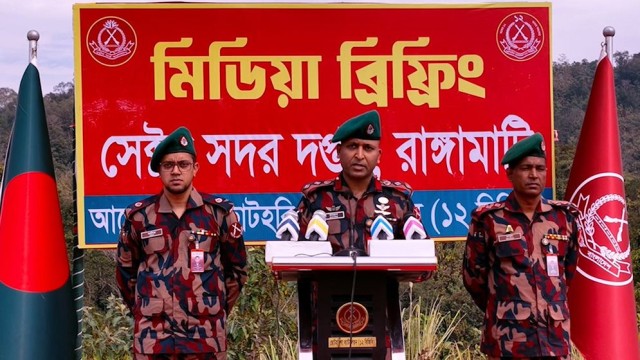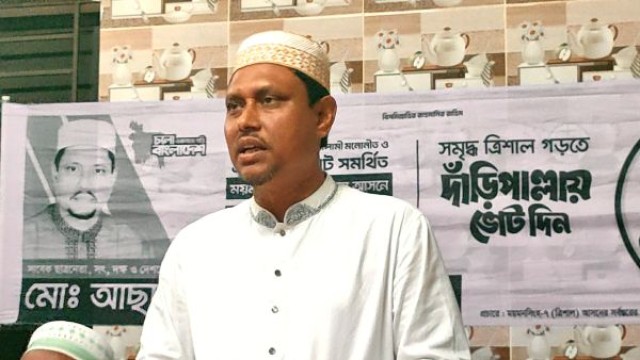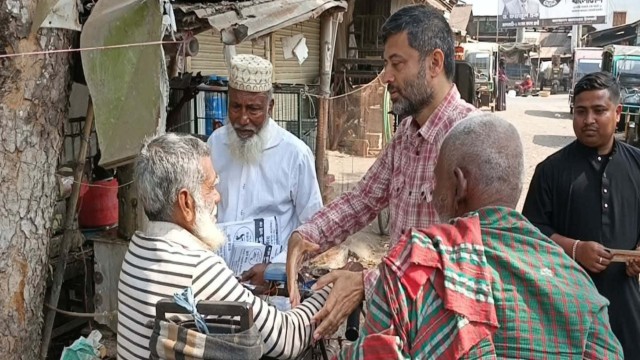Rajshahi, Dec 21, (V7N) - In protest against NESCO’s alleged inflated electricity bills and various forms of harassment, the Rajshahi Rakkha Sangram Parishad, a large social organization in northern Bangladesh, held a human chain on Saturday, (Dec 21). The protest also called for the cessation of the contaminated and foul-smelling water supply from Rajshahi WASA, a guarantee of safe drinking water, control over the rising commodity prices, and other demands.
The human chain, held from 10:00 AM for one hour at the Shaheb Bazaar Zero Point in the city, was attended by leaders from various professional organizations in Rajshahi.
Presided over by Liakat Ali, President of the Rajshahi Rakkha Sangram Parishad, the protest was addressed by several speakers, including General Secretary of the Rajshahi Rakkha Sangram Parishad, Jamat Khan; Haripur UP Chairman and Jamat leader Professor Abul Kalam Azad; Advocate Hossein Ali Payara; Former Principal of Rajshahi Survey Institute Mahmud Hasan; Former Director of Rajshahi Chamber of Commerce Harunar Rashid; Engineer Ziauddin Ahmed; Central Committee member of Bangladesh Environment Movement (BAPA) Afzal Hossain; Senior journalist Mamun-or-Rashid; Student leader Zahid Hasan; President of Rajshahi Women’s Web Anjuma Ara Parveen Lipi; Student leader Khalid Bin Walid Abir; Women’s leader Selina Begum; Businessman Nota Golam Nabi Roni; Maulana Al Amin Bin Arman; Social worker Sonia Begum; and others.
The speakers stated that the water supplied by Rajshahi WASA is extremely unsafe. Recently, harmful bacteria like coliform have been found in the water, posing serious health risks. However, instead of improving the water quality, the prices have been increased. The protesters demanded an immediate halt to the price hike and better water quality, issuing a stern warning to WASA. They also called for a public hearing and an ultimatum to set water prices within reasonable limits by January.
The human chain also issued a warning to NESCO, accusing the company of exploiting electricity consumers under the guise of providing services. They claimed that NESCO is collecting money from consumers without their knowledge, demanding the cancellation of prepaid meters, an end to ghost billing, and ensuring uninterrupted electricity supply. The speakers insisted that consumers should have the freedom to choose their meters, and NESCO should not impose meters on consumers.
The protestors further stated that NESCO is issuing bills without reading the meters, which has become an additional burden on consumers. They vowed that the people of Rajshahi would not accept such unfair practices. They demanded a public hearing to bring electricity meter readings and bills to a just and reasonable level.
Additionally, the speakers called for the control of food and commodity prices in line with the income levels of the public. They emphasized that with Ramadan approaching, the prices of essential goods must be kept within the purchasing power of the people. They also demanded regular market monitoring to prevent adulteration of food items and to protect consumer rights.
The protestors called for an immediate public hearing to determine the prices of WASA water and NESCO electricity, involving the people of Rajshahi in the process. They also issued an ultimatum to control the rising commodity prices, warning of a strong movement if their demands are not met.
END/MRA/SMA/AJ/





























Comment: